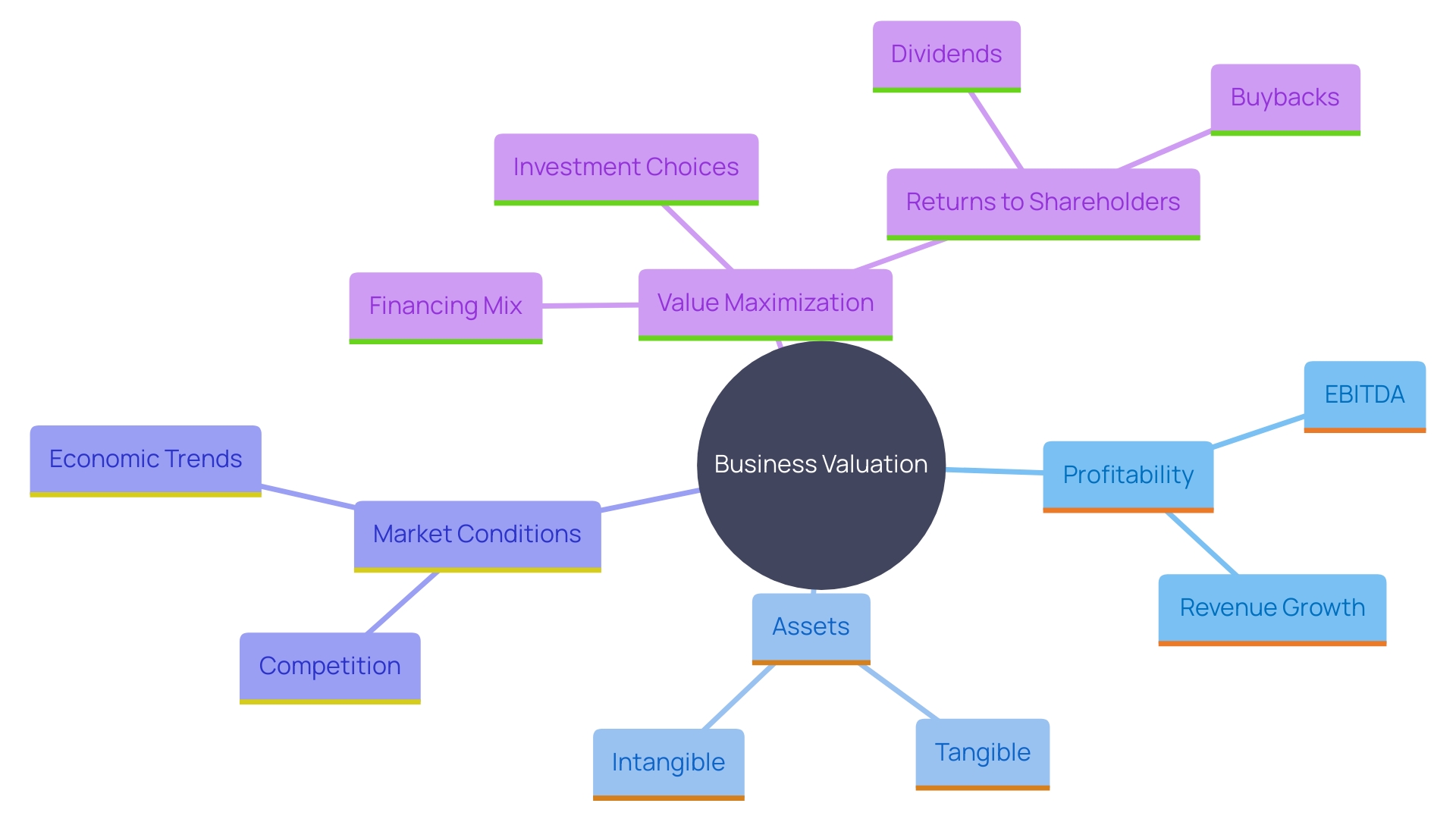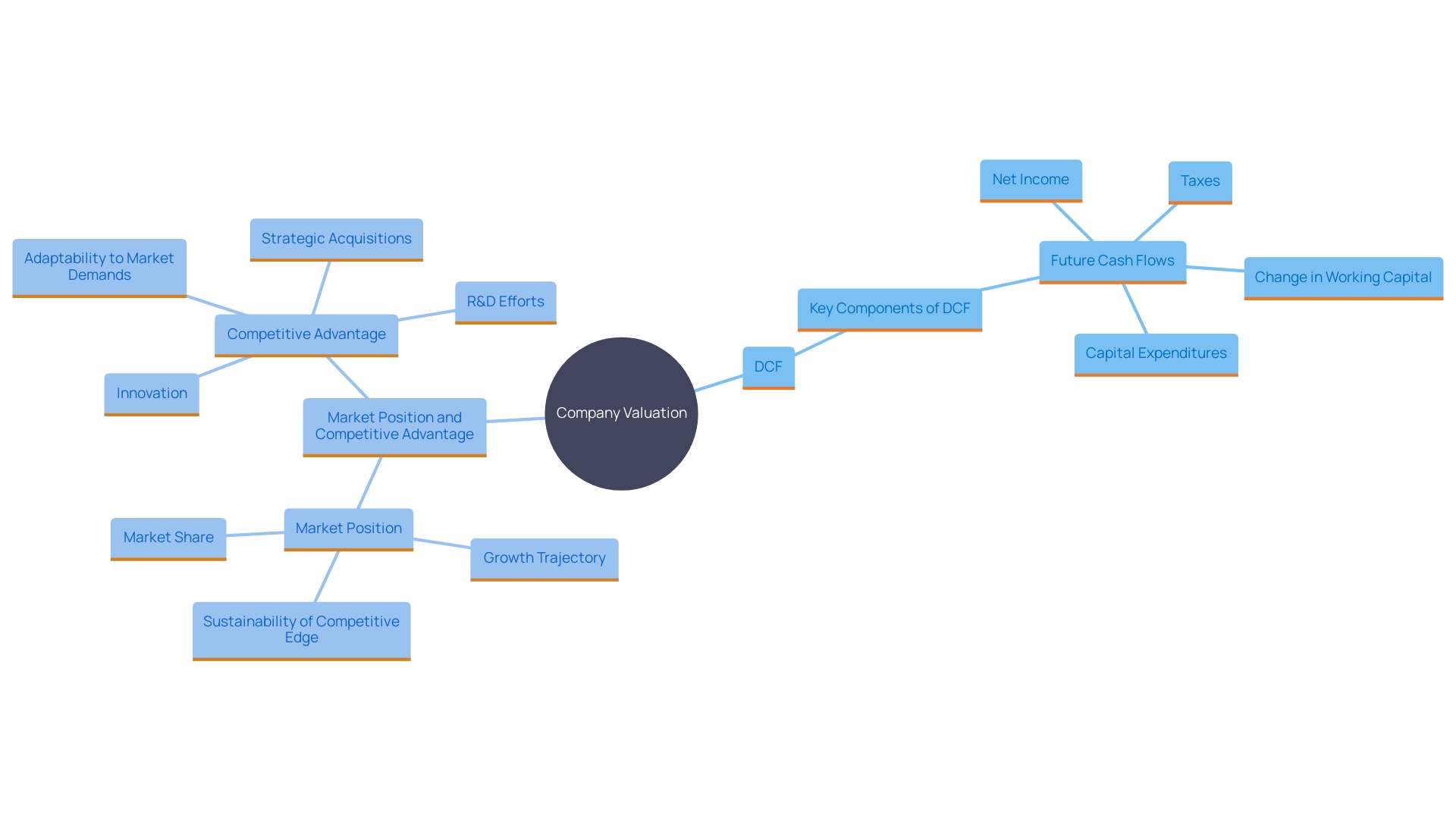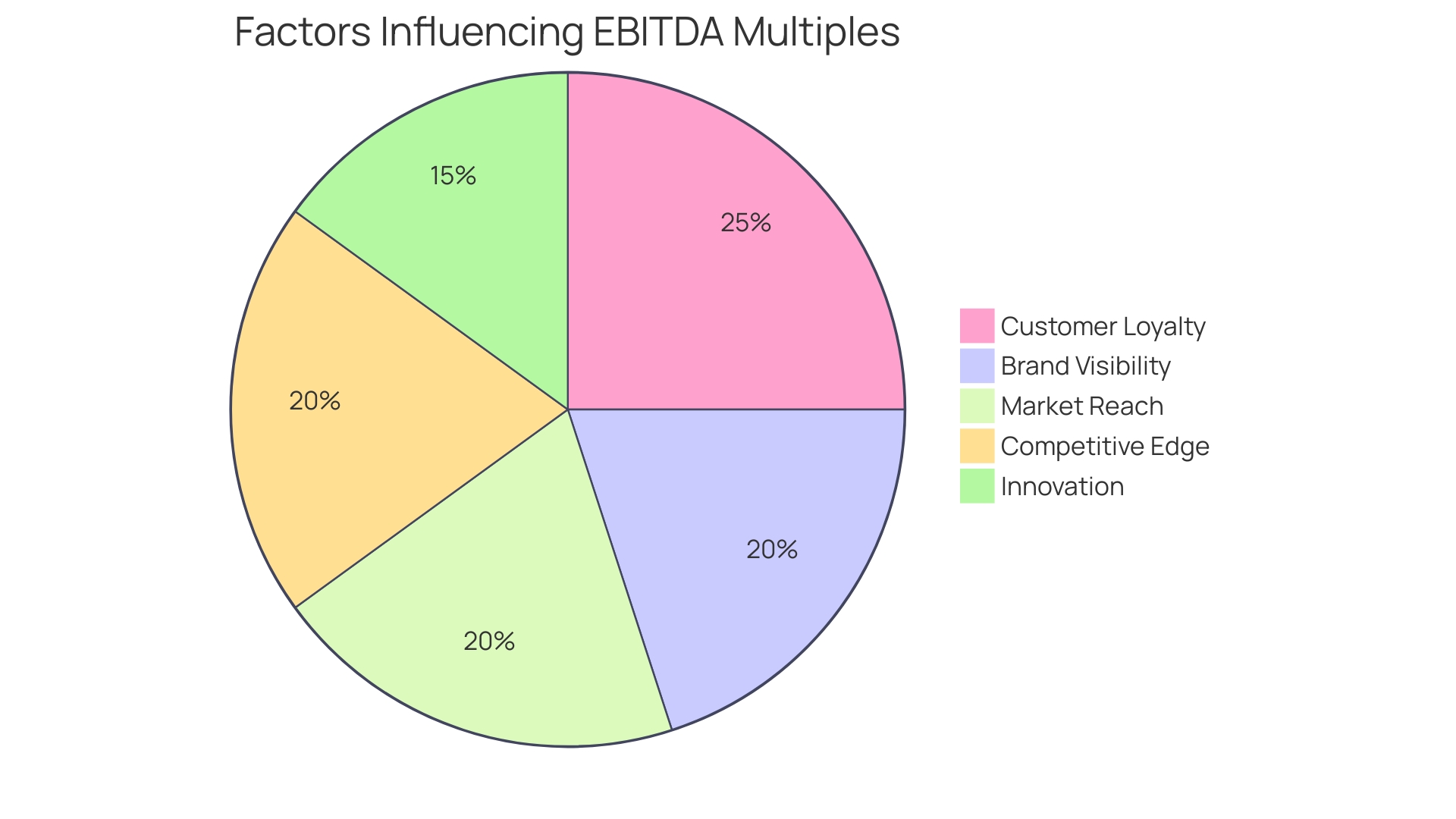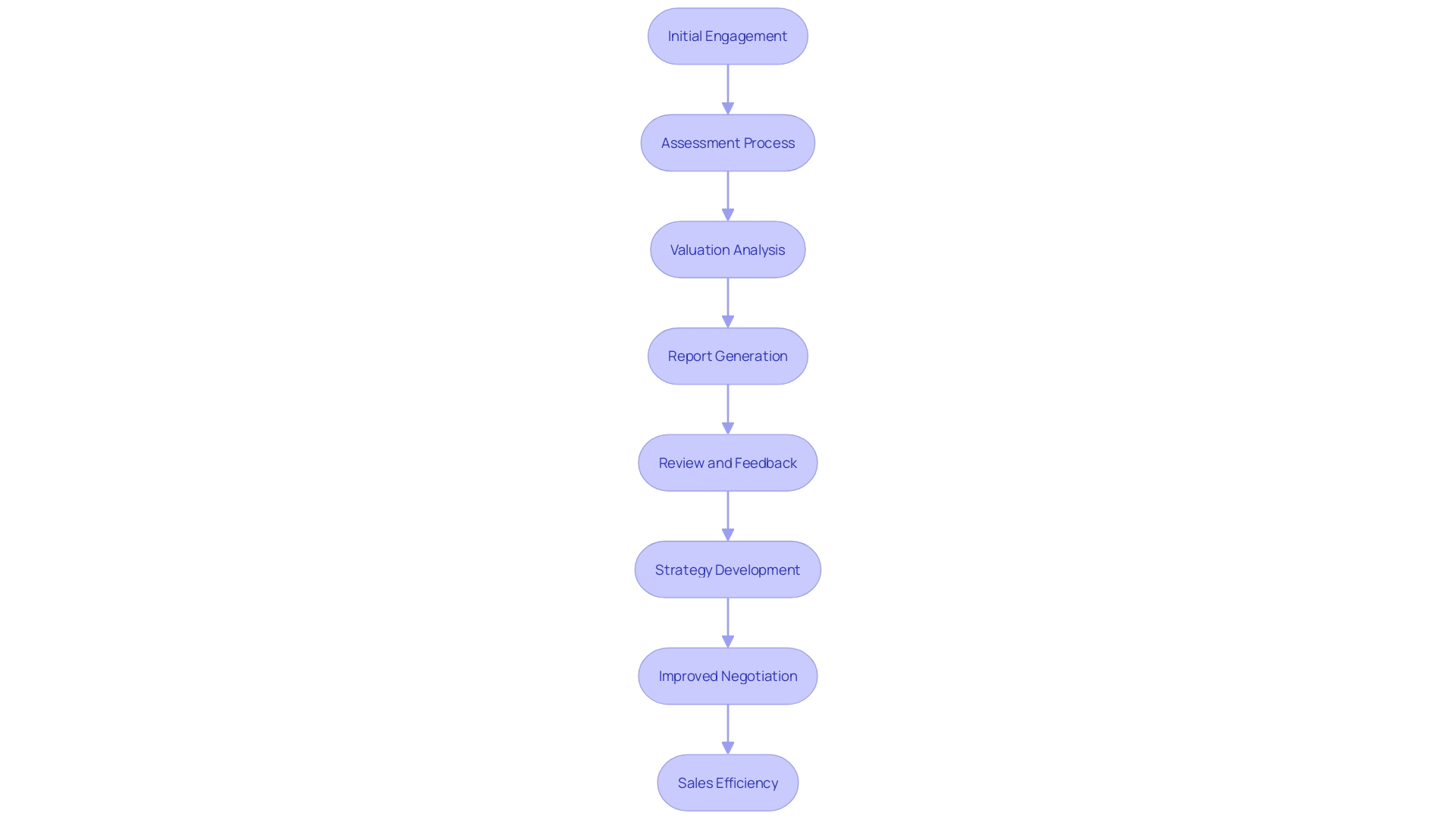Introduction
Assessing the value of a company is a complex task that holds significance for both business owners and investors seeking to make well informed choices.This piece discusses the factors that impact business valuation by looking at profitability trends, in revenues and the value of assets.It also examines valuation techniques designed for technology and online enterprises highlighting the significance of creativity and intellectual assets.
Moreover the article emphasizes the significance of using EBITDA multiples to determine a companys value. It also stresses the importance of valuation and market analysis, for precise and strategic business evaluations. Understanding these valuation methods can help businesses enhance their chances of growth and long term prosperity.
Key Factors Influencing Business Valuation
To assess the worth of a firm valued at $10 million accurately requires considering important aspects of the business. The profitability of the business plays a role in valuation analysis with a focus on metrics such as Earnings Before Interest Taxes Depreciation and Amortization (EBITDA) serving as a key reference point. This particular indicator provides information on operational effectiveness and potential future earnings for the organization.
Revenue patterns are also crucial as they provide insight into growth opportunities and consumer demand, in the business landscape. Increasing income is a key indicator of an organization’s promising investment potential as it signifies its capacity to attract and grow its market presence.
The value of a business is greatly influenced by its assets. Both intangible in nature; this includes intellectual property such as patents and trademarks as wells as physical assets, like real estate and equipment which are crucial factors to consider for providing a competitive advantage and ensuring investor confidence.
Market conditions influence the assessment of a business. Factors such as economic trends and industry performance have a significant impact in this regard. For example, a business operating in an industry experiencing growth may be valued more highly compared to one in a stagnant sector. Additionally the overall economic climate shapes how prospective buyers view the situation influencing the amount they're willing to invest.
Ultimately the goal is to maximize worth by weighing profits against future growth opportunities. As noted in Bain's studies, prominent businesses frequently focus on expanding and innovating to remain in the market and ensure lasting worth generation.

Valuation Methods for Tech and Online Businesses
Assessing the worth of technology and online companies demands strategies because of their distinct revenue structures and ever evolving growth trends. One successful technique involves using the discounted cash flow (DCF) method to estimate cash inflows and reduce them to their present worth. Especially effective for businesses, with consistent revenue streams. Another significant approach is the comparison technique that assesses an organization's worth by contrasting it with businesses recently sold.
To grasp these evaluation techniques fully isn't about running numbers but also delving into the company's presence in the industry and competitive advantage thoroughly. Key factors such as brand recognition, customer loyalty levels, and outreach play a role in evaluating a company's position. For example, companies with a presence in the industry typically have loyal clients, unique product ranges, or innovative technological solutions. Businesses that have a presence in the industry often prosper because of their innovative strategy and their ability to adapt to changing demands. Qualities that tend to catch the eye of potential investors.
Organizations that continually create new ideas through research and development (R&D) or strategic acquisitions typically obtain valuations based on statistical data analysis outcomes to highlight the importance of not only current performance but also future growth opportunities in the technology and online sectors by evaluating factors, such as share dynamics and competitive advantages.
One example showcased how a tech firms worth can rise thanks to its intellectual property (IP). Assets, like patents and exclusive technologies can boost investor trust. Enhance the company's position in the industry landscape significantly. It is crucial to carry out an IP review that includes all registered and unregistered rights during this assessment phase.
To conclude the points mentioned previously; becoming skilled in these evaluation methods and understanding the broader corporate environment can provide a comprehensive view on the potential worth of a technology or internet-based venture—especially when reflecting on valuations, around the $10 million mark.

Using EBITDA Multiples for Valuation
EBITDA multiples are frequently utilized in assessing the value of medium-sized enterprises as an essential measure in the process. The method entails identifying the EBITDA multiple relevant to your sector—a figure that can vary significantly based on economic conditions and competitive landscape. For example, solidly established firms, with a market presence defined by well-known brand visibility, strong customer loyalty, and extensive market reach generally attract higher multiples.
When you determine the industry worth, you can multiply your firm's EBITDA by this number to obtain an initial approximation of its worth. This method is especially useful as it gives an evaluation of your business value and acts as a reference point in talks, with potential purchasers.
A companys edge over competitors – be it a distinctive product line or cutting edge technology – can impact its worth significantly. Companies demonstrating a dedication to innovation and adaptability in reaction to changes often achieve greater valuations indicating potential for expansion and sustainability. This holds significance in sectors, like software, where the worth is heavily influenced by intellectual property and industry standing.
When you use EBITDA multiples for valuation purposes it simplifies the process. Also supports the overall aim of maximizing worth to assist your enterprise in expanding and becoming more profitable over time.

Importance of Professional Valuation and Market Analysis
Working together with a valuation specialist can reveal important perspectives on the value of your business entity. This accomplished professional uses industry standards, careful market studies and advanced financial models to provide assessments. This detailed process not highlights the merits and drawbacks of your company but also prepares you for discussions, with potential purchasers. As emphasized by Chris Voss, a negotiation authority gaining insight into the motives and viewpoints of all parties involved in a transaction significantly enhances the likelihood of a successful conclusion. Preparing yourself in this way helps you confidently explain your desired price and makes the transaction process smoother overall. Like what seasoned entrepreneur Jeron Paul experienced with his startup Spiff when he tackled challenging commission calculations head on and transformed it into a thriving SaaS platform that streamlines commission processes for better accuracy and efficiency. Similarly conducting a valuation evaluation can vastly improve your sales process by making it more transparent and efficient.

Conclusion
It's essential for business owners and investors to grasp the complexities of valuing a business to achieve success effectively. Factors like profit margins and revenue patterns alongside asset assessment are vital in gauging a companys value. Metrics such, as EBITDA not just highlight how efficiently operations are running but offer a glimpse into possible future profits. Underscoring the significance of a thorough evaluation process.
The article underscores the importance of using customized valuation approaches for tech and online companies by stressing the importance of taking into account their market position and competitive strengths.Tactics like discounted cash flow analysis and market comparisons are crucial, for determining value in this ever evolving industry.Firms that focus on innovation and have intellectual property are more likely to gain investor trust.Highlighting the significance of positioning in attracting investment.
Moreover EBITDA multiples make the valuation process simpler and provide an insight into a companys potential value.This approach highlights the advantage that can have a notable effect, on a companys valuation predominantly in industries influenced by innovation and market adaptability.
Collaborating with experts in valuation can offer valuable perspectives that improve the evaluation procedure as a whole.its beneficial for businesses to utilize industry norms and market research to get ready for talks, with potential purchasers.this can enhance the chances of successful deals.having a solid grasp of valuation methods and market trends enables companies to optimize their worth and pursue sustainable expansion.
Adopt these approaches to set yourself up for long term achievement, in a changing business environment.




